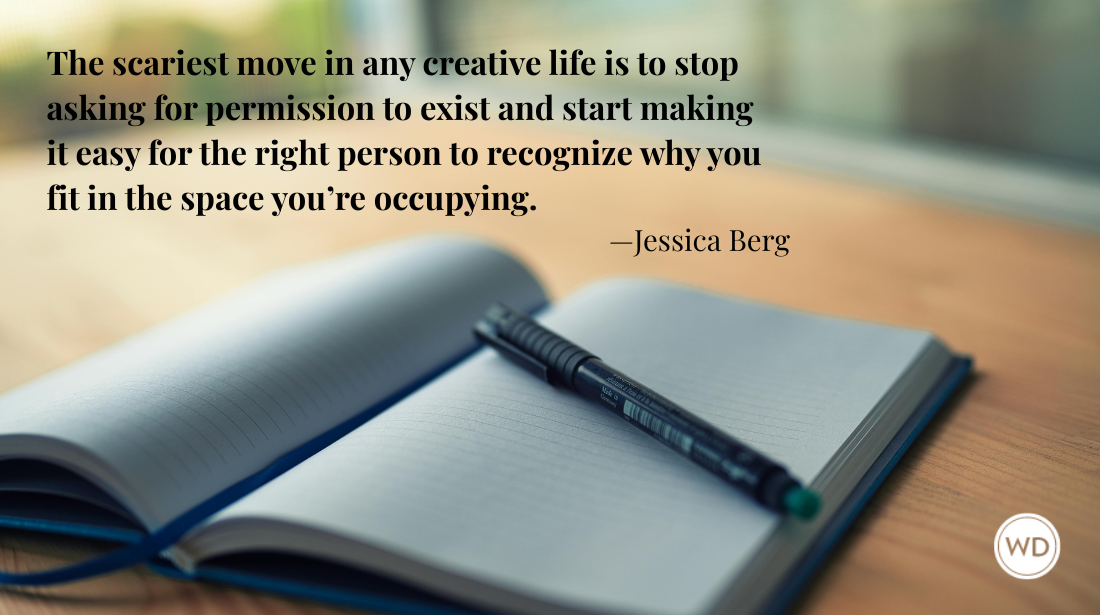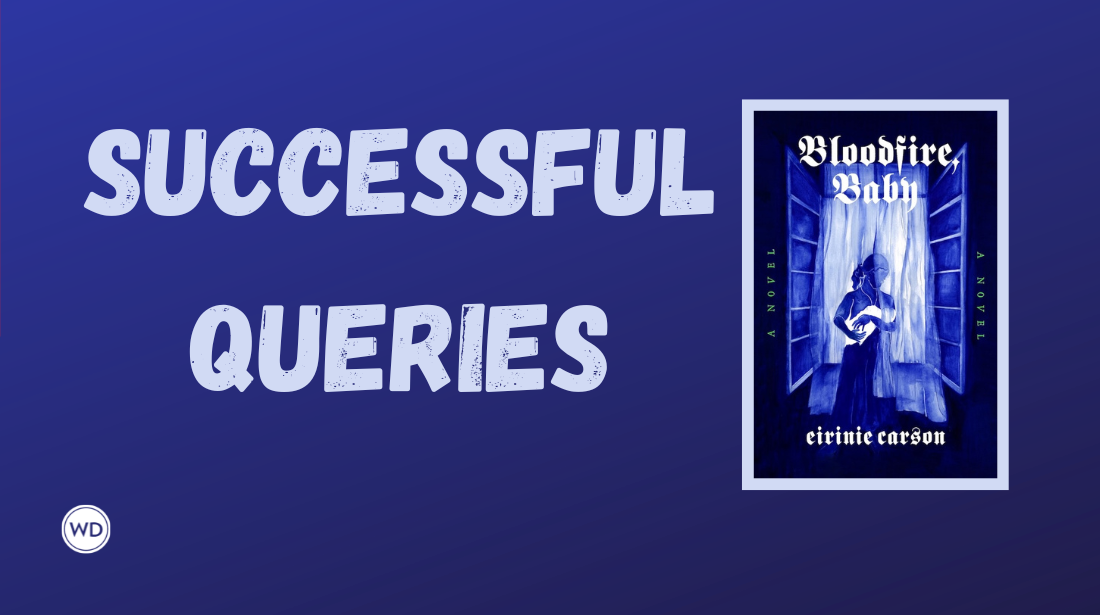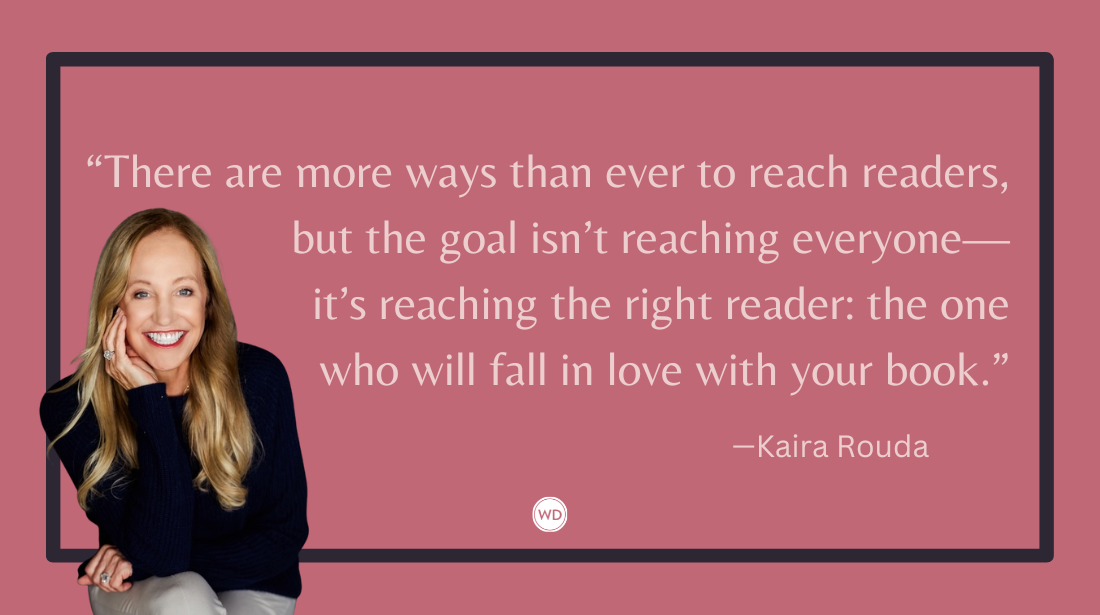How Long Does It Take to Go From Idea to Publishing a Book?
Editor Robert Lee Brewer explains that the publishing journey looks different for everyone, but there are a few things authors can do to help themselves through the process.
I don’t know about you, but I like to set goals when I’m taking on a new project. As such, I like to have a general idea of how long it takes to accomplish tasks that help me achieve my goals. If I have a goal of running a 10K, I know I need at least a few weeks of running under my belt to run a competent time—and a few months if I want to run a competitive time. But what about writing (and publishing) a book?
It’s actually one of my favorite questions to ask in my author spotlight series on WritersDigest.com. Over the years, I’ve noticed some trends—like that debuts tend to take longer from idea to publication than later books in a series, and that one author’s concept of “taking a really long time to complete a project” is actually warp speed for another author.
“I started working on this book in the summer of 2018,” says Nancy Reddy, author of The Good Mother Myth: Unlearning Our Bad Ideas About How to Be a Good Mom (St. Martin’s Press). “My older son, who’d just finished kindergarten as I began, will be well into his first year of middle school by publication. So, the research and writing and thinking in this book really spanned my kids’ entire elementary school years.”
For some authors, like Marianne Cronin, author of Eddie Winston is Looking for Love (Harper Perennial), the process speeds up with practice: “Eddie Winston is my second novel, so the process was a lot quicker than with my first novel, The One Hundred Years of Lenni and Margot, which took seven years from initial idea to publication! Once I’d had the inspiration for Eddie, things happened quite quickly. I started writing in November 2021 and by March 2022, I had 50,000 words to share with my agent and editor.”
However, other authors find that their process just takes time regardless: “I hope this isn’t disheartening, but every book takes me about 10 years from first thought to last word,” says Erika Swyler, author of We Lived on the Horizon (Atria). “I’m actively writing one novel while another is floating around in the back of my mind.”
Still, other authors just aren’t even sure: “It’s gotten harder over the years to pinpoint exactly how long any one project takes since my best ideas usually hit right in the middle of deadlines where I’m already working on something else,” says Kayla Olsen, author of The Lodge (Atria). “This one I think took around two years?”
Self-Publishing at the Speed of Light
One thing becomes obvious early on: Self-published authors can move from idea to publication on a faster timeline than authors—even the speedy ones—on the traditional publishing track. Plus, many of the successful self-published authors still get traditionally published in roughly the same timeframe as an author going through the regular submission process.
“The Bones Beneath My Skin was originally written in 2017, and then self-published in 2018,” says TJ Klune. “From there, it was picked up by Macmillan/Tor to be republished in 2025.”
Meanwhile, Jillian Meadows says, “It took me about nine months to write Give Me Butterflies (Avon), and I originally self-published it. Now, it has gone through a few more rounds to get to this traditionally published version. So overall, it has been a little over two years since the idea began.”
“I began writing the series toward the end of 2021, and I self-published the first book in June of 2023,” explains Penn Cole, author of Glow of the Everflame (Atria). “About a year later, I partnered with Atria Books on the print edition of the series, which is rolling out over the next few months. Altogether, it has been about three years from deciding to write the books to seeing them on bookstore shelves.”
Agents Can Help Ideate
While not every literary agent is game for helping authors brainstorm ideas, some agents definitely thrive on facilitating the creative process.
“My agent and I brainstormed the initial premise in July of 2022, but it took three drafts for me to become confident in who the killer was and figure out how all of the characters were connected,” says Ande Pliego, author of You Are Fatally Invited (Bantam). “Total, it took around two and a half years.”
Edward Underhill, author of The In-Between Bookstore (Avon), also found brainstorming with his agent was helpful: “I started discussing the concept of the book with my agent in late 2022, and then once I’d written the first few chapters and a full synopsis, we sent that as a proposal to my publisher in early 2023. Then I had to write the rest of that book, which I actually did in about a month and a half! It was insanely fast, and I’m honestly not sure I recommend drafting at that pace; but one good thing was that I had no time to overthink anything. There simply wasn’t time.”
Of course, most projects aren’t going to be written that fast. Some are sure to take time and might even be hidden from an agent until they poke and prod their authors enough. Such was the case for Sarah Perry, author of the essay collection Sweet Nothings: Confessions of a Candy Lover (Mariner): “At first, ‘the candies’ (as I came to call them) were a project of private creative rehabilitation. I just wanted to enjoy making sentences again. So, I resolved to write each morning, for 100 mornings, about a different kind of candy. I’d get up, still sleepy, and say, ‘Today is about Reese’s Pieces.’ And I’d let it rip, just kind of following my morning brain wherever it wanted to go before my editor-brain woke up. One day, my agent Jin Auh called me and asked what I’d been working on. I actually felt like I didn’t have much to say for myself, but I eventually ‘confessed’ that I had a ‘secret project’ that had somehow grown to 65,000 words. She insisted I send her the manuscript later that day, and she loved it. We sequenced it by color and submitted it to my publisher for first look, and we got an offer pretty much right away.”
Keep Your Ideas Alive
Nearly instant success is nice but do your best to stay balanced and in this thing called writing for the long haul, because some success stories take longer than others. The most important factor for writing success often is patience.
“In some ways, I’ve been working on this book since 2008,” says Megan Collins, author of Cross My Heart (Atria). “At some point, maybe two books ago, as I continued to let it simmer on the back burner, I thought of a really cool … thing—that’s all I’m willing to say—that could happen in it, but I was unsure if I had what it took to execute it. Finally, in late December 2022, I needed to present a new idea to my publisher, so I committed to plotting it out … by April 2024, it was off to production!”
And remember that everything is relative. “I feel like it took eons,” says Virginia Feito, author of Victorian Psycho (Liveright). “It took five years.”









